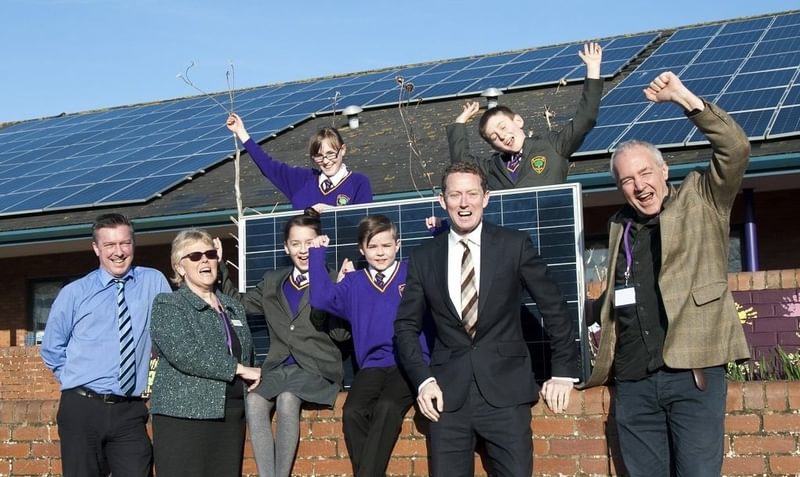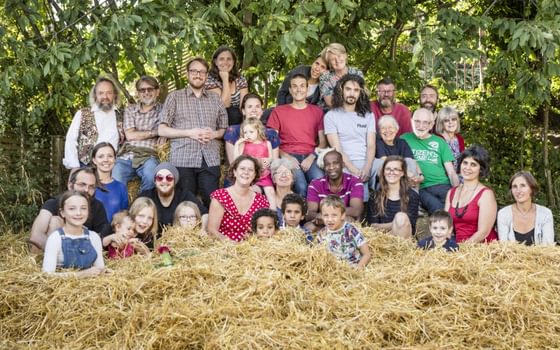Schools’ Energy Co-operative
Barrow-in-Furness
Schools’ Energy Co-operative has installed solar panels on schools across the country, working with a network of local groups.

The Schools’ Energy Co-operative installs community funded solar panel systems on schools free of charge, while giving all profits back to its member schools.
The not-for-profit scheme supports schools to cut their carbon emissions and generate green energy, saving them money and teaching children about sustainability. It works with the schools and local community groups to maximise the environmental, educational and community impact of the solar installations. The installation and maintenance costs of the systems are covered by share offers to the local community using a crowdfunding model.
The Schools’ Energy Co-operative was launched in 2014 to install solar panels at Glenleigh Park Primary Academy in East Sussex, which is still one of the largest community-owned solar energy systems in the UK. It has more than 750 members and has carried out installations on 80 schools across the UK.
In 2018 the co-op won the Community Energy Award for the most outstanding renewable electricity generation project undertaken by a community group. The following year, it won Inspiring Co-op of the Year at the Co-op of the Year Awards.
Mike Smyth, volunteer chair of the Schools’ Energy Co-operative, told Co-op News: “Installations save schools money on their electricity bills, which allows them to direct funds to other areas like books or playground equipment. And, importantly, they normalise green energy. Children see how renewable energy works, and it becomes a school-gates conversation, showing a way to help tackle the climate emergency at a local level.”
New rules needed
Policies that can help unleash the potential of this or similar initiatives across the UK.
-
Launch a Co-operative Development Agency
A network of support and capacity building to develop and extend the capabilities of the co-operative movement. -
Start inclusive ownership funds
An economic heartbeat that transfers the ownership and control of businesses to workers and other key stakeholders. -
Introduce a Co-operative Economy Act
A legal framework tailored to the needs of co-operatives and supportive of their future development. -
Introduce a Sustainable Economy Act
Climate change laws should be extended to set binding targets to protect all aspects of our environment. -
Implement an employee right to own
Co-operatise existing businesses to accelerate new models of ownership and increase the volume of the co-operative sector in the UK. -
Promote community wealth building
Support co-ops to thrive in their localities by anchoring them within place-based industrial and community wealth building strategies. -
Create new sources of finance for co-ops
Create financial instruments and institutions tailored to the needs of the co-operative economy. -
Replace GDP with better measures of national success
Better headline indicators – that reflect the things we really want – are essential for better policymaking. -
Introduce a maximum pay ratio
Executive pay has become divorced from reality. A pay ratio will spread wealth and reduce inequality. -
Finance a Green New Deal
Government-led investment is vital – here are five ways to pay.






